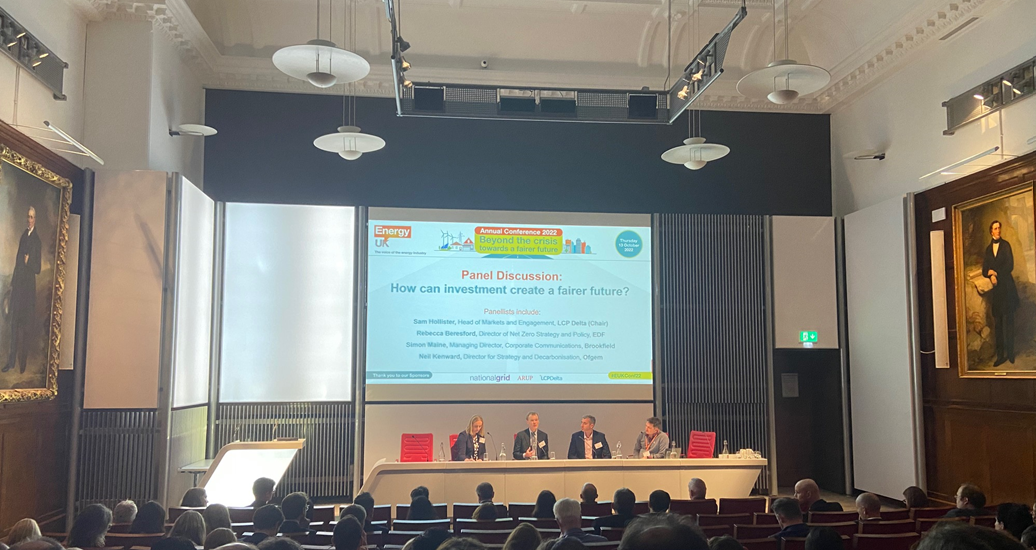
‘Extraordinary we’re talking about banning solar on farmlands,’ says Brookfield. Image: George Heynes.
“I find it extraordinary that we are talking about banning solar on farmlands, but we are talking about putting oil drills on farmlands – it is an industrialised process,” said Simon Maine, managing director, corporate communications at investment firm Brookfield Asset Management.
Discussing this at Energy UK’s annual conference, Maine responded to recent claims that the government is planning on banning solar on some farmlands at the same time that it is actively pursuing fracking opportunities on the same land.
“We need to think about priorities when it comes to the bigger challenges at hand,” Maine added.
The solar sector hit back after reports emerged that environmental secretary Ranil Jayawardena is looking to redefine land categories to make the development of ground-mount assets harder.
Initially reported in the Guardian, Jayawardena is said to be considering extending the definition of Best and Most Versatile (BMV) land to Grade 3B.
Currently the majority of solar farms are developed on land that is designated as 3B within the Agricultural Land Classification (ACL) scheme.
Liz Truss made a controversial move with the announcement to end the moratorium on fracking in Britain. The process of hydraulic fracturing to access natural gas reserves had been allowed in areas with public support thanks to this.
This measure brought criticism and disappointment for a lack of focus on energy efficiency and a reintroduction of fracking – something that will increase the UK’s carbon footprint.
Rebecca Beresford, director of net zero strategy and policy at EDF, also recognises the need for priorities via decarbonisation as a means to gain greater energy independence and security.
“There is no underestimating the size of the challenge we have right now. We need to come up with solutions everywhere, even at a basic level. However, what is now in our favour is an opportunity to create an industry focused on decarbonisation - a solution to all points of the trilemma,” Beresford said.
Decarbonisation is cited as a long-term solution to the ongoing energy crisis. According to a report from consultancy Stonehaven, the UK government needs to think beyond the short term to truly tackle the energy crisis and look towards decarbonisation and net zero solutions.
Of those surveyed, 59% believed radical change to the energy system is the only way Britain can become more energy secure in the future. Of three options presented to consumers, 60% chose the “Energy Island” system, whereby Britain is almost entirely self-sufficient using onshore and offshore renewables, supported by nuclear power and extensive storage.
As indicated by Beresford, should industry be aligned and supported in achieving decarbonisation, it could be regarded as a long-term strategy to achieve key governmental targets such as net zero and energy independence and security.
